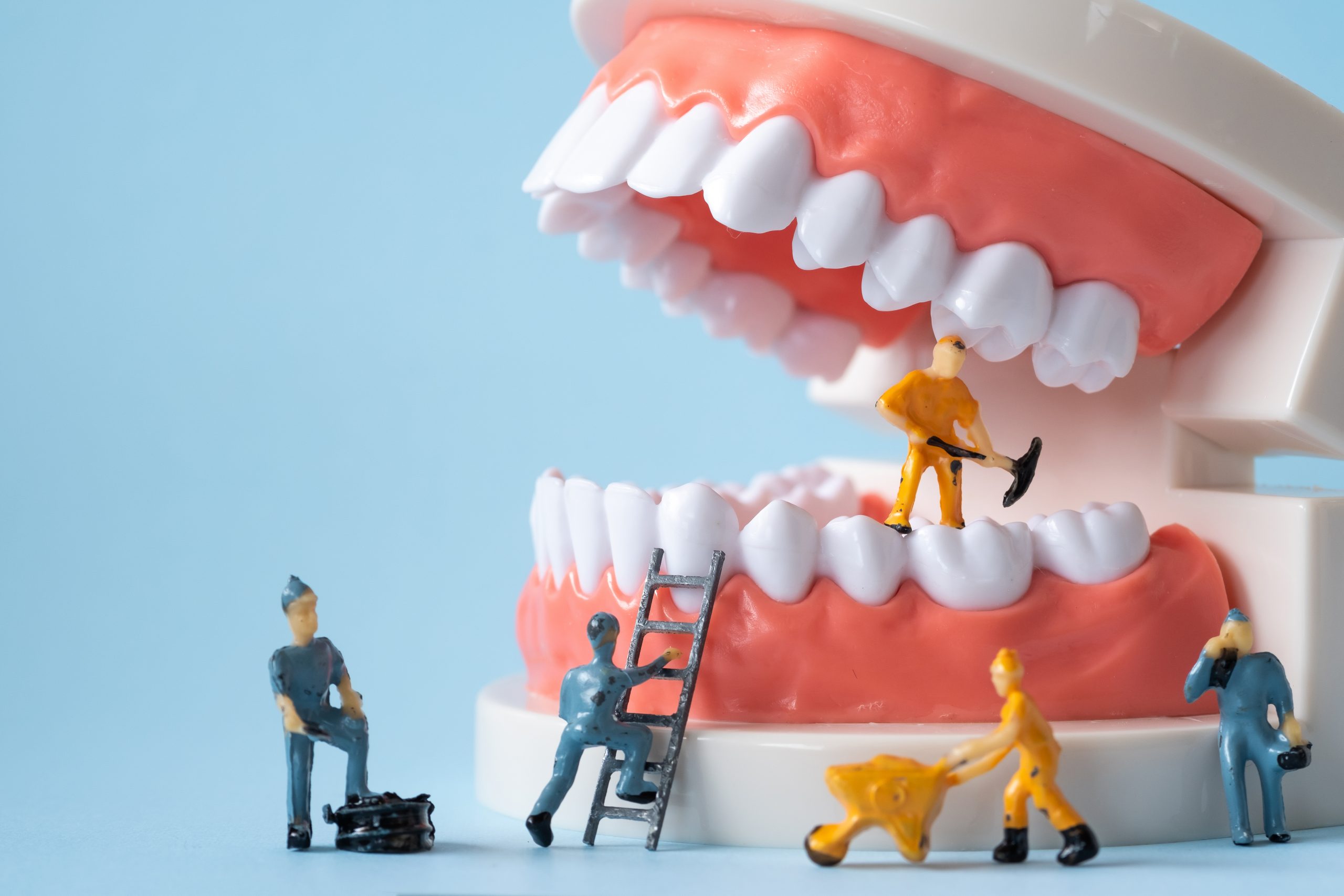Comfortable and well-fitting dentures require a tight fit against your gum tissue. However changes in bone and gum structure can occur throughout your lifetime eventually causing your dentures to become loose. Ill-fitting dentures can cause sores and infection, and may make chewing and speaking more difficult. In addition poorly fitting dentures can also contribute to problems by wearing down the bone and soft tissues in your mouth more quickly. A denture reline will resurface your dentures to conform to the changing contours of your mouth for a better fit and feel.
There are several different types of relines for different requirements
- Temporary Reline – a silicone gel that is designed to last a few months. Normally this is used in dentures of people who have had their natural teeth extracted or to improve the health of their tissue before new dentures are made and put in place.
- Direct Reline – this is also known as a chairside reline. With this one, the direct reline material is inserted into the denture and allowed to set in the mouth while you wait in the dentist’s chair. A direct reline is available in both a hard and soft base and can be used as a long term solution for fitment issues.
- Lab Processed Reline – this is completed by placing slow conforming impression materials inside your existing denture and sending to a denture lab. The lab will process the new material into the denture, giving the fit of a new denture. This may take a day or so to complete.
- Soft Reline – used mainly in full lower denture, it allows for more protection and comfort for people who may have sensitive gums and little or no bone support. It is bonded to your denture. The denture base being softer will be less irritating to your tissues which can help with sore spots.
- Rebase – This is the process of refitting a denture by replacing the entire denture base. It’s done by taking a new impression inside the denture, completely removing the old acrylic and adding a new acrylic base around the existing teeth. This is recommended for dentures that have multiple repairs, discoloration or are very thin.
As a general rule, your dentures should be relined every 5-10 years. However loose fitting dentures are the best indication. Relines are just a normal part of denture maintenance and crucial to the health of the oral tissue and bone support of your mouth. A reline is not always the best procedure for a denture with excessively worn or broken teeth.
Denture Repairs
Dentures are not indestructible. If too much force is placed upon them or if you should drop them, they will break. Biting down on hard foods, clenching and grinding or dropping your dentures can crack the base, chip a tooth or cause a tooth to come off. If a tooth breaks off the denture, please keep that tooth as it fits the denture perfectly and matches the other teeth. Also do not attempt to repair the denture or partial with super glue or over the counter products. Generally this will ruin the prosthesis and will make it much more difficult to fix and increase the cost of the repair.
We understand that your smile matters, and so does your time. If your denture needs an emergency repair we can usually fix it that same day. However, the time it takes to repair a denture depends on the severity of the damage. We might be able to repair a chipped tooth in a couple of hours but more complicated issues may take 24 hours or more to repair.
Dentures often show early signs of potential damage. Often, an improper fit is the most common cause of cracked dentures. Dr. Zobrist recommends periodically looking for any areas of damage or new signs of wear. Signs of wear generally include bite marks from the teeth that are chewing into the denture or the denture not fitting as well or not having the suction it used to have. As you speak or chew, your dentures apply pressure on one another repeatedly. Over time poor fitting, misaligned dentures will overstress a specific area, causing a break that will only continue to worsen. For areas of damage, check the gum portion of the denture using light to shine through it to evaluate for any cracks forming.
If you note cracks forming, please call our office 225-248-6777 to schedule an appointment for your denture repair before the cracks get bigger or the denture fractures.


